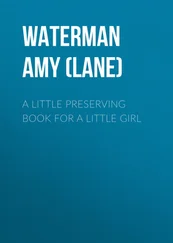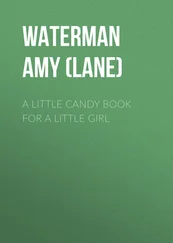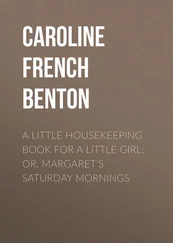Amanda Douglas - A Little Girl in Old Philadelphia
Здесь есть возможность читать онлайн «Amanda Douglas - A Little Girl in Old Philadelphia» — ознакомительный отрывок электронной книги совершенно бесплатно, а после прочтения отрывка купить полную версию. В некоторых случаях можно слушать аудио, скачать через торрент в формате fb2 и присутствует краткое содержание. Жанр: foreign_prose, на английском языке. Описание произведения, (предисловие) а так же отзывы посетителей доступны на портале библиотеки ЛибКат.
- Название:A Little Girl in Old Philadelphia
- Автор:
- Жанр:
- Год:неизвестен
- ISBN:нет данных
- Рейтинг книги:3 / 5. Голосов: 1
-
Избранное:Добавить в избранное
- Отзывы:
-
Ваша оценка:
- 60
- 1
- 2
- 3
- 4
- 5
A Little Girl in Old Philadelphia: краткое содержание, описание и аннотация
Предлагаем к чтению аннотацию, описание, краткое содержание или предисловие (зависит от того, что написал сам автор книги «A Little Girl in Old Philadelphia»). Если вы не нашли необходимую информацию о книге — напишите в комментариях, мы постараемся отыскать её.
A Little Girl in Old Philadelphia — читать онлайн ознакомительный отрывок
Ниже представлен текст книги, разбитый по страницам. Система сохранения места последней прочитанной страницы, позволяет с удобством читать онлайн бесплатно книгу «A Little Girl in Old Philadelphia», без необходимости каждый раз заново искать на чём Вы остановились. Поставьте закладку, и сможете в любой момент перейти на страницу, на которой закончили чтение.
Интервал:
Закладка:
Mistress Kent gave a little smile of malice and a jaunty toss to her head.
"The child needs nothing of that since she comes back to us and plainer living. She reads well and is not slow in figures. I shall see that she is instructed in all housewifely ways, but it is ill making headway when the tide runs down the stream."
Lois Henry really sighed then. She did hate to have her six months' labor and interest come to naught. She longed to snatch the child from these paths of temptation, for now, as she was growing older, they might be more alluring.
"Come hither, little one, and let me measure you. My, but you have grown tall, and keep slim, so there will be less for stays to do. 'As the twig is bent,' you know," laughing and showing her even teeth, of which she was very proud. "And a fine figure is a great advantage. Your hands are not ill-kept, I see."
They were tanned, but dimpled, with tapering fingers and rosy nails, and the skin fine and soft.
"Hands are for use and not ornament. Thou art to do with thy might whatsoever comes in thy way."
"True, Friend Henry. But a clean room may abound in virtue as well as an untidy one. And a well-kept person surely is no sin. Put off your shoe, child. Ah, you have a slim foot, though no one would think it, to see the shoe."
She had been taking measurements and putting figures on an ivory tablet that she slipped into a cloth pocket hanging at her side.
"I have the necessary requirements, I believe, and the maid can have a few things in order. We will send in on Wednesday. That is the date appointed, Friend Henry."
She picked up her whip with an airy grace, and stood tall and straight, her habit falling around her feet.
"Now I will bid you good-day, though it is almost evening. Do not look so sober, little Rose, but then we will soon have smiles displacing the Quaker gravity, which ill beseems young people. Friend Henry, why do your community consider smiling sinful when it is so pretty and comes from a merry heart? A man who went about to commit murder would scarcely smile, methinks."
"'The laughter of fools is as the crackling of thorns under a pot,'" was the somewhat severe answer.
"One need not break out into silly giggling," was the rather tart reply. "I abhor that myself. But a smile on a child's face is much to be preferred to a frown. 'And a merry heart doeth good like a medicine.'"
"'Children,' saith the wise man, 'are to be brought up in the fear and admonition of the Lord.'"
"Ah, well! luckily there are many rules and opinions in the world. Good-by, Rose-blossom. Next week we will welcome thee at Wetherill House."
Primrose followed her aunt to the door. There were Mistress Kent's horse and the black servant, who respectfully touched his hat and assisted his mistress to mount, then sprang on his own steed, and with a wave of the hand and a nodding of the veil she cantered away.
"Next week! Why, Aunt Lois, how near it is! I had forgotten," Primrose exclaimed breathlessly.
"It would be a most excellent thing if thou wert allowed to forget altogether. This continual changing works ill. Now go and stir the meal and feed those late chicks. Put in some of the cracked corn for the mother hen."
Primrose went at once, though she was eager to ask about the promised journey, but the habit of repression was strong upon her, and obedience to the letter was exacted from children at that period. It must have been a halcyon time for mothers when a child never ventured to ask why.
Friend Henry went out to the kitchen again. It was a great room with a wide fireplace and a crane that accommodated two kettles. An iron baking pot stood in a bed of coals, with a plentiful supply on the cover. The black woman came and gave it a push partly around, with the tongs, so that the farthest side should have the benefit of the blaze.
There were even then many Friends who owned slaves, indeed most of the servants were of African descent. The feelings and beliefs of Philadelphia were more in consonance with the settlements farther south, than those to the north of them. But the Henrys held slavery in abhorrence, and hired their servants. Lois Henry kept but one woman, and she was quite superior to the average of her race; indeed, like her mistress, was of the persuasion of Friends.
The two women busied themselves about the supper. If Friends were plain in their household adornments and attire, they did not stint in food nor the trouble of preparing it.
Primrose fed the two late broods whose mothers had stolen their nests and brought off their families in great triumph. One had thirteen, the other eleven. Their mothers ran cheerfully to the coops and called their progeny. When the families were within, Primrose took up the slatted door and fastened it down with a stake and shut up the peeping things so busy with their supper.
As she was loitering on the way back, she saw her uncle and cousin Andrew talking eagerly. Did they know she was going away next week? She ran forward and Andrew turned to her with a smile, while his father talked on.
She clasped his hands in hers so warm and soft. His were brawny and hard, but he was a great fellow and he looked down with a kindly, protective air.
"Oh, do you know Aunt Wetherill has sent over, and – "
"Yes," slowly, "we knew it was time. Madam Wetherill does not forget easily."
"Primrose!" called her aunt.
She hastened to the kitchen, rinsed out her dipper, and hung it up. Uncle Henry was washing his hands and Chloe was taking up the hot bread and dishing the stewed chicken. Oh, how delightfully appetizing the fragrance was! And she was so glad not to have forfeited her right to the supper.
"Come to the table," said Aunt Lois.
The four heads were bowed reverently. There was not much talking at meal time. Aunt Lois was ever afraid of idle words and vain babbling. Uncle James had a good, hearty appetite, as became his size and strength, and generally occupied himself in ministering to it. Children in Quaker households – indeed, in nearly all others – had the wise old adage dinned into their ears that they were to be seen and not heard, and they also understood that they were to be seen as little as possible.
When the supper was ended Primrose went out to the kitchen and dried the teacups, of which Aunt Lois was quite choice, and the silver heirlooms – the teaspoons her grandmother had brought from old England.
Friend Dunscomb was coming up the path. That meant an evening in the best room with Uncle James and Aunt Lois. There were many agitating subjects to talk about in these days. Primrose walked out of the kitchen door and around the path, sending a long, dubious glance in the direction of her new home.
Six months ago she had left it. How queer to be divided up in this way. She had felt lonely at Wetherill House, and missed her mother sadly. To be sure it was winter, and here on the farm it was glowing, golden summer. She had not known the dreariness of a long winter here. There were so many enchanting things, so much life and joy and beauty. In a vague way it thrilled her, even if she did not understand. There were rambles in the lanes, and the orchard where she could climb trees; there was luscious fruit in which she was never stinted. Rides behind Cousin Andrew on Jack, and going to market, as a rare treat, with Uncle James, learning to spin on the little wheel, stealing away to the old garret and reading some forgotten, time-stained books that she dared not ask about. Sometimes she had a misgiving of conscience, but no one ever inquired about them, or what she did up there.
Andrew came out and took a seat under the old apple tree. She ran down to him.
"Andrew, why must I go to Aunt Wetherill's every six months?" she asked.
He glanced at her in a slow, irresolute fashion.
Читать дальшеИнтервал:
Закладка:
Похожие книги на «A Little Girl in Old Philadelphia»
Представляем Вашему вниманию похожие книги на «A Little Girl in Old Philadelphia» списком для выбора. Мы отобрали схожую по названию и смыслу литературу в надежде предоставить читателям больше вариантов отыскать новые, интересные, ещё непрочитанные произведения.
Обсуждение, отзывы о книге «A Little Girl in Old Philadelphia» и просто собственные мнения читателей. Оставьте ваши комментарии, напишите, что Вы думаете о произведении, его смысле или главных героях. Укажите что конкретно понравилось, а что нет, и почему Вы так считаете.












